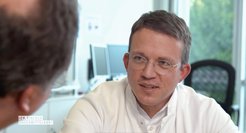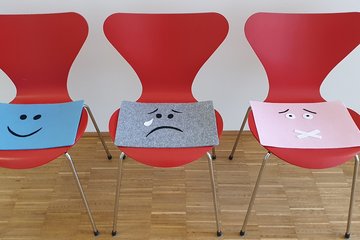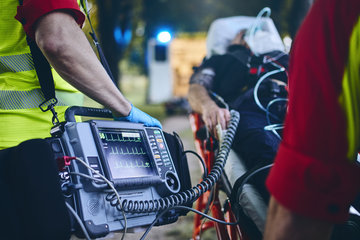A not so typical colleague
People with autism often have outstanding skills, which can be enriching for businesses

A huge whiteboard with a timetable: whether it's blood tests, morning rounds or various individual and group therapy services - everything is neatly and clearly noted, down to the smallest detail. The weekly schedule provides orientation, support and structure over a six-week period, Monday to Friday, from 8am to 4pm.
At the day clinic in Munich, adults with highly functional autism learn to deal with the challenges of working life, which often seem beyond control to them. "From the application process to taking their first steps in the new company to making small talk”, says social worker Sabine Kießewetter, “our job-oriented training helps them to get started in the job or to find their way back into employment". Interpersonal communication, in particular, is a hurdle for many of them. The greeting, the casual chat, making eye contact during the job interview – the patients train all of these skills in individual coaching session.
Only black and white
“On the one hand”, Leonhard Schilbach explains, “autistic people perceive their world very precisely whilst, on the other, they often find it difficult to interpret the emotions of their fellow human beings intuitively". The psychiatrist is head of the Outpatient Clinic and Day Clinic for Disorders of Social Interaction at the Max Planck Institute of Psychiatry in Munich. Imprecisely worded work assignments can easily lead to misunderstandings in professional life. For example, after a guest student had printed off some documents and his boss asked him to print off some more, using the German phrase for repeating a task, which translates as “do the same again in green”- he printed the documents in green, Schilbach explains. The job seekers very rarely lack intelligence. Their difficulties are the result of unwritten social laws. Many of them, including Wolfgang Gaß for example, have a sharp eye for detail, a talent for recognising patterns, and are strong in logical thinking.

The 46-year-old has completed a degree in electronics, an apprenticeship as a mechanical engineer and a master's degree in biology, for which he was awarded a grade of 1.9. But despite being exceptionally talented, he was unable to find a job. "Why am I even in the world if I'm not wanted anyway and there's no demand for my gifts and talents?" he asks in the Vox series, "Am I simply unemployable?” During this series, which was broadcast at the end of 2018 and was nominated for the German Television Prize and the Grimme Prize, people diagnosed with disorders such as autism or Tourette's syndrome discovered their true strengths with the aid specialist diagnostics. Gaß now works near Zurich.
During the shooting of the documentary, he also met Leonhard Schilbach – a "likeable, very busy man", as Gaß describes him. The psychiatrist had also been cast for the show, but for a long time was uncertain whether he should take part in it. "Although the MPI of Psychiatry is already taking some unconventional approaches in collaboration with employers, such as Auticon and BMW, an appearance on a television series is not necessarily part of a doctor and scientist’s job description”. However, the decisive factor that ultimately swayed him to take part in the experiment, despite his reservations, was the opportunity to destigmatize the autism spectrum diagnosis. His task in the series was to identify the individual strengths of the autistic protagonists.
The psychiatrist recognized early on that Wolfgang Gaß had great potential: "He knows a lot about his autism, deals with it openly and has extraordinary intellectual abilities.” Schilbach was therefore very pleased that Gaß was offered a place in the series at a spin-off of the Goethe University in Frankfurt. The two are still in touch.
"I’m not alone!”
Former patients rarely manage to stay in contact with the clinic staff following their stay at the Munich day clinic. And yet there are quite touching scenes to be observed, as assistant doctor Judith Gollmitzer describes: "Most of our patients have been suffering for years. When they are with us, they realise they are not alone with their problems.” An experience that has a lasting effect on the patients as they move towards a more fulfilling professional and personal life.
By Barbara Abrell and Petra Maaß
By Barbara Abrell and Petra Maaß













